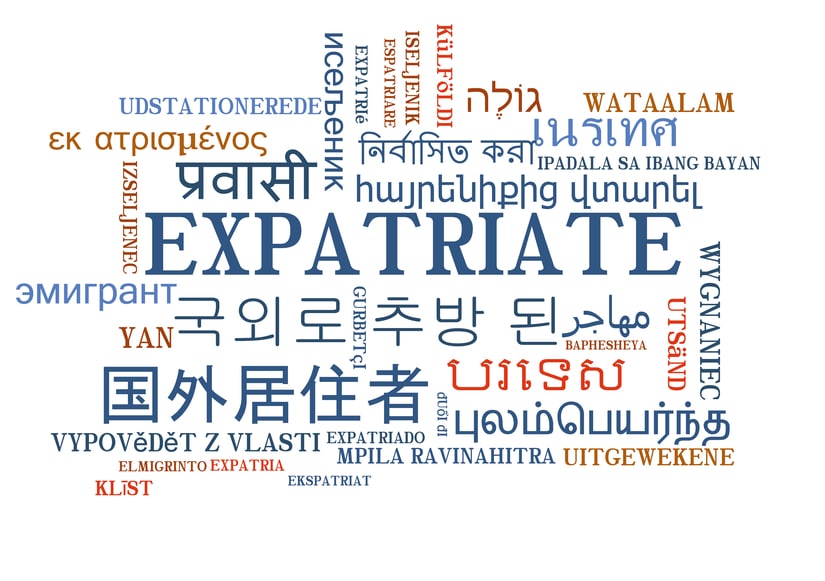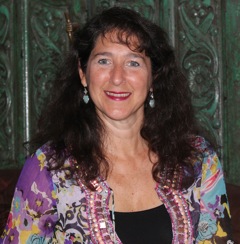Anne is a truly inspiring expat whose can-do attitude has led to a successful career she loves as a freelance writer, author and consultant. Here she offers really practical advice on how to start a productive portable career you love without being sucked into low-paying jobs. Having turned her passion for writing into a career, Anne tells us how her experiences as a peri-menopausal directly influenced and inspired her latest novel, which will launch on March 8th, International Women’s Day. Good luck with the launch Anne!
Please tell us where you are originally from and what prompted you to move overseas?
I’m originally from Halifax, Nova Scotia. My husband and I both hate the cold so in 1993, we moved to Florida. Not a big move, I know, as so many Canadians do escape south for the winter and are often referred to as snowbirds. We just decided to be year-round snowbirds! Our next move took us much further (to Dubai) and came about when my husband was offered a great job.
What is the biggest lesson you have learned from your life as expat?
There are so many lessons to learn when living outside your home country. I answer this question differently every time it’s asked, depending on the latest a-ha moment or the place I happen to be in (mentally and physically) at that moment in time. Right now, I would say that one of the most important lessons I’ve learned is to be prepared to meet another side of yourself. My friends know me as a very social person but moving far away from home brought another side of me into the picture… the one that could happily hermit away for days on end and not speak to another living soul. It wasn’t a bad thing. As a writer that’s a great trait to have, but I realize I have to guard against becoming too isolated. Once I start having full-blown conversations with my cat I know it’s time to get out and talk to some humans.
What advice would you give to someone who was relocating to an overseas country for the first time?
Reach out and then reach back. Always remember that even though it might be your first expat experience, there’s going to be someone nearby who has been there before and is more than willing to help you adjust. Don’t be shy. Take any opportunity to introduce yourself to someone new the very first day (or maybe wait until the jetlag has eased up a bit so you’re actually formulating intelligent sentences). Whether it’s walking down the street, picking up a few groceries or hanging out at the driver’s license place, if someone smiles at you, strike up a conversation. Then, don’t forget to return the favor. Once you’ve got a week or so under your belt, you’re a pro compared to someone who has just arrived so be the first to offer a welcoming smile and directions to the closest wine shop! You get back what you put forth.
You have carved out a portable career for yourself by working as a writer. Please describe what you do and how it came about.
I am a freelance writer, author and consultant. I do corporate copy writing and consulting in the areas of marketing, PR, corporate communications and social media. I recently started writing fiction as well and my first novel launches in March. My background is in PR and I worked in the business for 17 years. When we moved to Dubai it was a perfect opportunity to make a change. I had thought seriously about working for myself in the past so I started exploring my options. I wanted to find something that I could do easily from a home office with little overhead. I contemplated on the skills that I had and realized that the one common thread throughout my PR career was writing. I love to write, I had years of business writing experience and I pretty much had everything I needed (a desk and a computer). The rest just fell into place.
What key challenges did you face when trying to make a living for yourself from writing?
It does take a while to establish yourself and build a client base that will help perpetuate more business either from repeat business or referrals. One of the challenges is to avoid getting sucked into the ‘discount’ mentality because you’re ‘just starting out’. There were so many potential clients that asked for a discount because there was the promise of more work down the road. That’s a direct expressway to more projects at rock bottom prices. Once they pay the discount price, they don’t want to pay more. I did fall into this trap more than once until I finally learned to quote what the project was truly worth and only provide discounts for non-profits and ‘solo-preneurs’. If you get too busy with the low-paying jobs you’re taking time away from prospecting for the better ones.
What three top tips can you offer to expatriates who wish to establish a portable career?
My top three tips would be:
1. Identify your greatest skill sets, talents, passions
2. Determine which ones you can do remotely – anywhere, anytime, anyplace
3. Get VERY familiar with technology, online marketing and social media
You have written a book that will be published on International Women’s Day. Please tell us more about the book’s content.
I’m so excited to be publishing my first novel on March 8th, International Women’s Day. It’s called Mental Pause and it’s about one woman’s spiral into the dark pit of peri-menopausal insanity. It’s full of twists and turns, tattoo parlours and dance clubs. After a wild night partying with her girlfriends, Abbie, the main character, winds up on trial for murder.
What prompted you to write it?
I woke up one night and my heart was racing and I was lying in a disgusting pool of sweat. Trying not to slime my husband who was sleeping quietly next to me, I got out of bed and tiptoed into my office. I had been experiencing these horrific night sweats for months and it was getting on my nerves. So, I did what any writer would do… I hit the keyboard and poured out what I considered the mad ramblings of a peri-menopausal woman. It made me laugh out loud as I wrote it and I started to feel better. I thought maybe I would turn it into a blog and then it dawned on me that if I wrote it as fiction I could really have some fun with it.
Why do you think your book needed to be written? What will it do for other people? How will it help?
I think people get a bit squirmy talking about menopause. Maybe in a lot of cases, women don’t want to talk about it because it means admitting that they’re over 40. My mom has always said, ‘you’re not too old for the years you’ve been born’ so I didn’t hesitate to comment to anyone who was listening that I thought I was experiencing ‘the change’. I was on the young side when the night sweats started happening (around 43) so it was a difficult revelation for me. I think some women have extreme symptoms that make them a little crazy and perhaps make decisions that they may not have made if they were able to openly talk about what they were feeling. It was cathartic for me to write it because no matter how bad my symptoms were, Abbie was having a much harder time with it and I hope it does the same for women who read it.
How did you publish your book? Did you find an agent, a publisher or did you publish it yourself? Please describe your process and tell us how you found the experience.
I finished writing the first draft of Mental Pause in November 2011 (during National Novel Writing Month, NaNoWriMo). It was at that exact time that my first book, non-fiction called @Home in Dubai, was launched. Since I was focusing on marketing that one, I sort of put Mental Pause on the back burner and started to research the querying process in between writing for clients and promoting @Home in Dubai, which was traditionally published by Summertime Publishing. I had some great feedback from a few friends I shared it with so started spending more time on editing it and picked up the pace on querying. A year and several rejections later, I made a New Years’ resolution that I was going to self-publish Mental Pause. I hired a designer to do the cover and interior layout prepared to use Kindle Direct Publishing for the ebook and Create Space for print on demand through Amazon, targeted International Women’s Day for the launch and took a very deep breath!
What tips can you offer to expatriates who are considering writing their own books?
Stop talking about it and just start writing! Write every day. Get your thoughts down on paper. Once you have an idea of the theme, the plot (even if it’s non-fiction it’s important to have a storyline), the audience and the market, then hammer out a chapter outline and start inserting what you’ve written into the outline. Organize a writing group and meet regularly to critique each other. There’s nothing more motivating than telling other people you’re writing a book and then asking them to help you stay on track. Subscribe to writer/author newsletters, read other books in your genre, join online writers groups (LinkedIn and Facebook are great places to start networking with other writers), ask for advice and… keep writing!
What’s next for you?
Well, I’ll continue with the corporate copywriting and social media consulting I’m doing while I launch and promote Mental Pause, and I have another novel underway that I hope to finish writing before the end of the year. Hopefully, if my first novel does well then I start to build a following and people will be eager to read the next one.
And finally, where can people buy your book?
Initially, it will be available on Amazon in Kindle and print formats as well as in PDF format on my website (www.anne-oconnell.com). I plan to convert it to other ebook formats as well for distribution through other ebook providers such as Barnes & Noble for the Nook and Apple iBooks.




